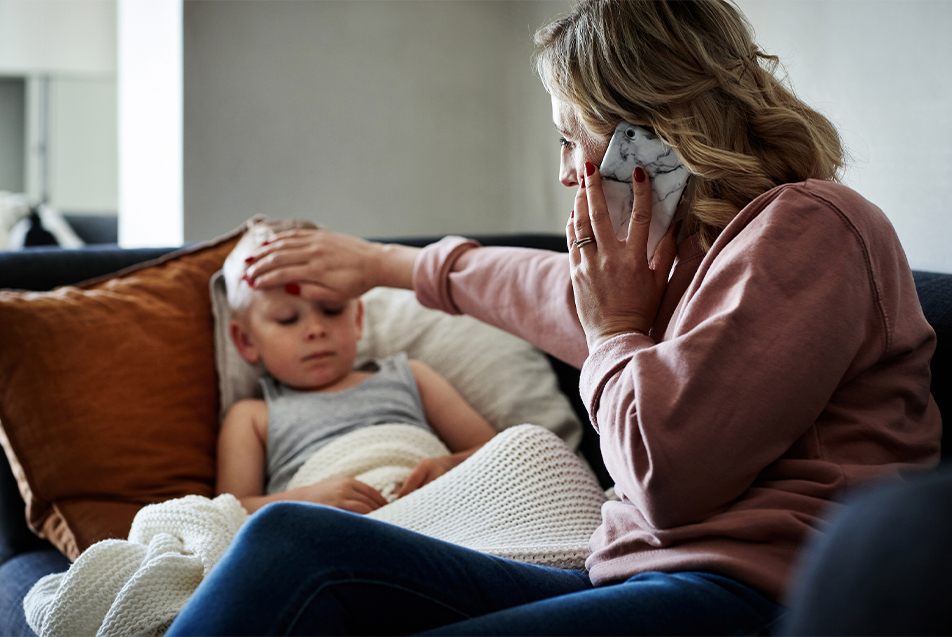
Omicron has proven highly contagious, infecting and hospitalizing children at an increased rate. To better understand this recent surge, we asked Robyn Schmucker, MD, PPG – Pediatric Infectious Diseases, to help answer our questions regarding the newest variant and its impact on younger patients.
How does the omicron variant affect children and babies?
Compared to the other COVID-19 variants, omicron has affected a higher number of children and babies compared to previous variants. It’s unclear if this is because omicron is more contagious in the general population or if there’s something specific about the variant that makes children more susceptible.
What are the symptoms of the omicron variant in children?
The symptoms of the omicron are very similar to past variants and can include:
- Fever
- Runny nose
- Nasal congestion
- Cough
- Sore throat
Some children may also have GI symptoms such as abdominal pain, vomiting, and diarrhea, while others may be asymptomatic. Additionally, symptoms tend to be milder with omicron and do not seem to last as long as previous variants. However, some children experience more severe symptoms and require hospitalization.
Does the omicron variant cause more severe disease in children?
No, the omicron variant does not cause more severe disease in children. The severity of symptoms with omicron is like other variants. Yet, one difference is that omicron is much more contagious, meaning more children are becoming infected and hospitalized. Furthermore, omicron seems to be affecting younger infants more than other variants. Infants are getting hospitalized due to fever, respiratory difficulty and dehydration.
When should parents seek medical attention for their children?
There are a few reasons parents should seek medical attention for their children. First, if the child struggles to breathe or breathes rapidly, parents should immediately take their child to the Emergency Department (ED). If your child has a fever for more than two days, get them evaluated by a pediatrician or primary care provider to ensure they don’t have an infection other than covid, especially if that infection would require treatment with an antibiotic. Lastly, if your child is not eating or drinking well or you think they are severely dehydrated, please seek immediate medical attention.
Should parents take their children to the pediatrician or emergency department?
?If your child is not having difficulty breathing, I would call their pediatrician or primary care provider first. However, if parents or caregivers have concerns on the weekend or when offices are closed, I suggest taking your child to the nearest walk-in clinic or ED.
How can parents protect their children and families from the omicron variant?
Parents can protect themselves by getting vaccinated and boosted. If a child is over the age of five, they can receive the COVID-19 vaccine as well. Try to practice social distancing when possible and steer clear of crowded events or places where you cannot separate yourself from others. Finally, hand hygiene goes a long way in preventing the spread of COVID-19 (and other infections), so make your child understands the proper way to wash their hands or use hand sanitizer.
Final thoughts
Parents shouldn’t be anxious about the omicron variant, but they should be aware that more children will get infected. And while less likely, children can still become severely ill and be hospitalized with the omicron variant. If your child develops symptoms consistent with COVID-19, please get them tested before sending them back to school or daycare. Taking the necessary precautions will help slow the spread of the virus.



